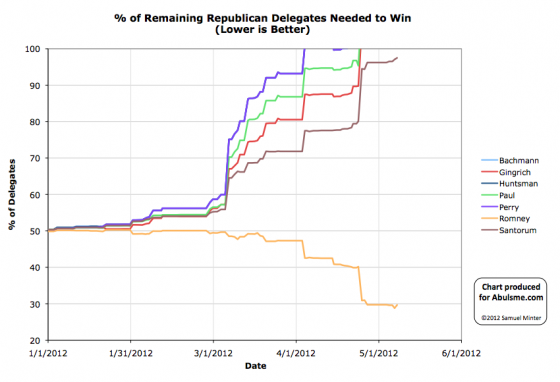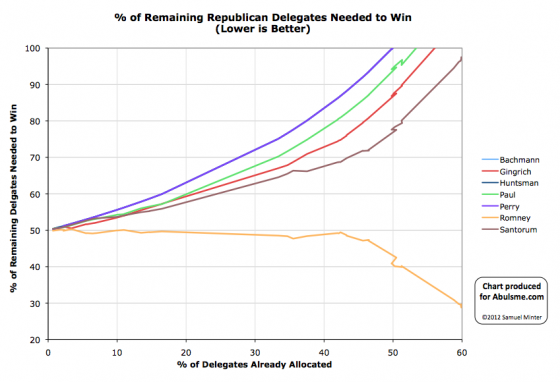- Reading – Media silent when administration targets sources (Edward Wasserman) http://t.co/MyQH9uLO #
- Reading – Why Choose Agnostic? Ctd (Andrew Sullivan) http://t.co/c1AqfRN3 #
- Reading – Could airport scanners detect latest Al Qaeda non-metal bomb? (Adam Goldman) http://t.co/dYz3hC37 #
- Reading – Forget That No-October-Surprise-Iran Attack Business I Was Talking About Before (Jeffrey Goldberg) http://t.co/95RMdmA5 #
- Reading – The White House’s ridiculous dance on gay marriage (Ezra Klein) http://t.co/RXwanhs0 #
- Reading – Dish’s Ergen: Streaming on Netflix “devalues” Mad Men (Daniel Frankel) http://t.co/8HnQLDze #
- MT @natsecHeather: If AQAP's best to throw at US was still failed underwear bomb tech, NOW can we declare that we are winning? @AP @lrozen #
- Reading – Facebook Social Readers Are All Collapsing (John Herrmann) http://t.co/IOtRNXPK #
- Reading – Romney's Path Is Not Necessarily Narrow (Sean Trende) http://t.co/GYbS8VXp #
- Reading – Reality Check: Yes, President Obama Is a Hawk (Conor Friedersdorf) http://t.co/MWu9ttlT #
- Reading – Ron Paul Comes Roaring Back Sort Of (David A. Graham) http://t.co/ungZZ8yW #
|
Charts from the Abulsme.com 2012 Republican Delegate Count Graphs page. When a candidate gets down to 0%, they have clinched the nomination. If they get above 100%, they have been mathematically eliminated. The first chart is by date, the second is by “% of Delegates Already Allocated”. These numbers include estimates of the eventual results of multi-stage caucus processes which will be refined as the later stages occur. As I mentioned yesterday, Ron Paul had a big weekend in Maine. Green Papers has now updated their Maine Soft Count to reflect this. The previous estimate for Maine was: Romney 10, Paul 8, Santorum 4, Gingrich 1, TBD 1. Paul completely dominated the process at the District Caucuses and State Convention though. So now we have Paul 21, Romney 2, TBD 1. That gives a net change for the day of Paul +13, Gingrich -1, Santorum -4, Romney -8 Paul is clearly the big winner for the day. Romney is clearly the big loser. Of course, Romney is so far ahead at this point it barely matters. In terms of “% of remaining delegates needed to win”:
And Paul? Well, down from 114.4% to 113.0%. Still way above 100%. Not in contention here. Of course, for Paul this isn’t about winning the nomination. He is getting down in the dirt in the state processes. He is winning a number of delegates, and Maine marks the second state (along with Minnesota) where he now has the plurality of delegates in Green Paper’s soft count (and he is tied in Iowa as well). In addition, he is collecting delegates in other states that while officially bound on the first ballot for Romney, are actually Paul supporters. Even though they can’t vote for Paul on the first ballot, these folks could cause procedural trouble at the convention if Paul wants them too. Completely aside from Convention delegates though, Paul is using the process here to build an organization and to start electing “his people” to positions in the local and state party structure. In states like Maine, Minnesota and Iowa, Paul supporters are in the process of taking over the state Republican Parties. This will not matter in 2012, but it means they will have a bigger role in defining how the process will work in 2016 and 2020. Ron Paul is probably on his last presidential run, but the structure he leaves behind will be ready for Rand Paul (or some other Libertarian leaning candidate) next time around. Winning the nomination was never what Paul was about. Working to put the machine in place to gradually, over many years, bend the Republican Party in his direction… that’s Ron Paul’s game. I don’t know if in the long run it will succeed, but that is what is going on here, not an attempt to keep fighting and win the nomination long after it was clear that would never happen.
|
||

